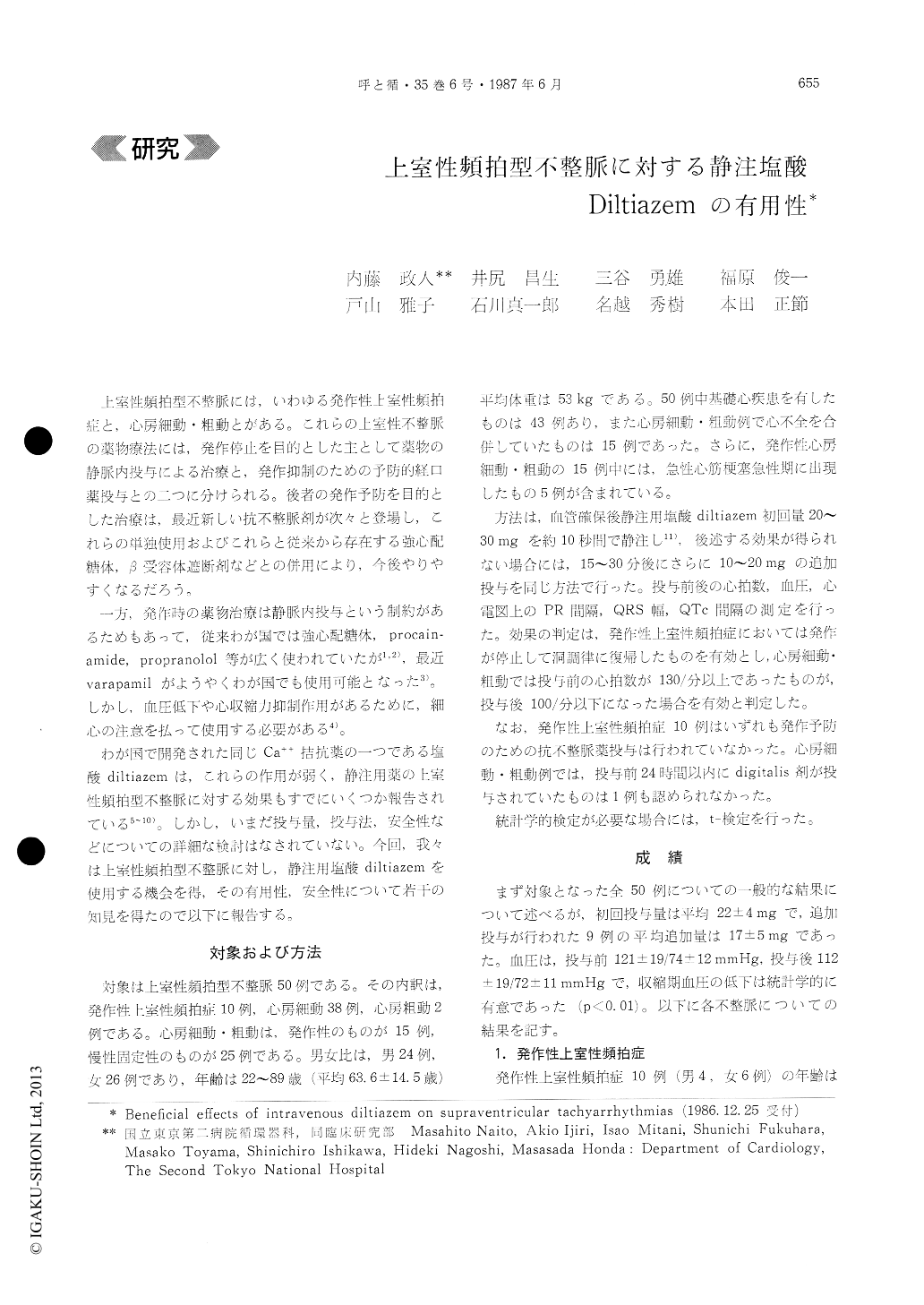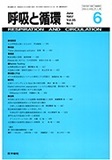Japanese
English
- 有料閲覧
- Abstract 文献概要
- 1ページ目 Look Inside
上室性頻拍型不整脈には,いわゆる発作性上室性頻拍症と,心房細動・粗動とがある。これらの上室性不整脈の薬物療法には,発作停止を目的とした主として薬物の静脈内投与による治療と,発作抑制のための予防的経口薬投与との二つに分けられる。後者の発作予防を目的とした治療は,最近新しい抗不整脈剤が次々と登場し,これらの単独使用およびこれらと従来から存在する強心配糖体,β受容体遮断剤などとの併用により,今後やりやすくなるだろう。
一方,発作時の薬物治療は静脈内投与という制約があるためもあって,従来わが国では強心配糖体,procain—amide,propranolol等が広く使われていたが1,2),最近varapamilがようやくわが国でも使用可能となった3)。しかし,血圧低下や心収縮力抑制作用があるために,細心の注意を払って使用する必要がある4)。
Effects of intravenous diltiazem hydrochloride was evaluated in 50 patients with supraventricular tach-yarrhythmias including 10 patients with paroxysmal supraventricular tachycardia, 25 patients with chronic atrial fibrillation and 15 patients with transient atrial fibrillation or flutter. Diltiazem hydrochloride was administered intravenously over 10 seconds, 20~30 mg initially and additional 10~20 mg if necessary. No patients had received digitalis and/or betabloc-kers in the previous 24 hours. All patients with artial fibrillation or flutter had ventricular rate above 130 beats/min at time of the study.
All patients with paroxysmal supraventricular tachycardia converted to normal sinus rhythm 30 seconds to 1 minute after the administration of dil-tiazem hydrochloride, and ventricular rate fell below 100 beats/min in all of patients with atrial fibrilla-tion or flutter after a mean of 1.8 minutes. This heart rate reduction persisted for 1 to 2 hours follo-wing an intravenous administration of the drug. The systolic blood pressure decreased minimally and no adverse effects were seen in none of these cases following diltiazem administration. Diltiazem hyd-rochloride had no significant effects on either the QRS or QTc intervals. No patients developed symp-toms after diltiazem administration. Intravenous dii-tiazem hydrochloride was safe in patients who had heart failure related to the occurrence of atrial fibril-lation and was also well tolerated by 5 patients who had an acute myocardial infarction.
Thus, intravenous diltiazem hydrochloride is very potent, highly effective, and well tolerated and may be the drug of choice for the acute management of patients with supraventricular tachyarrhythmias.

Copyright © 1987, Igaku-Shoin Ltd. All rights reserved.


